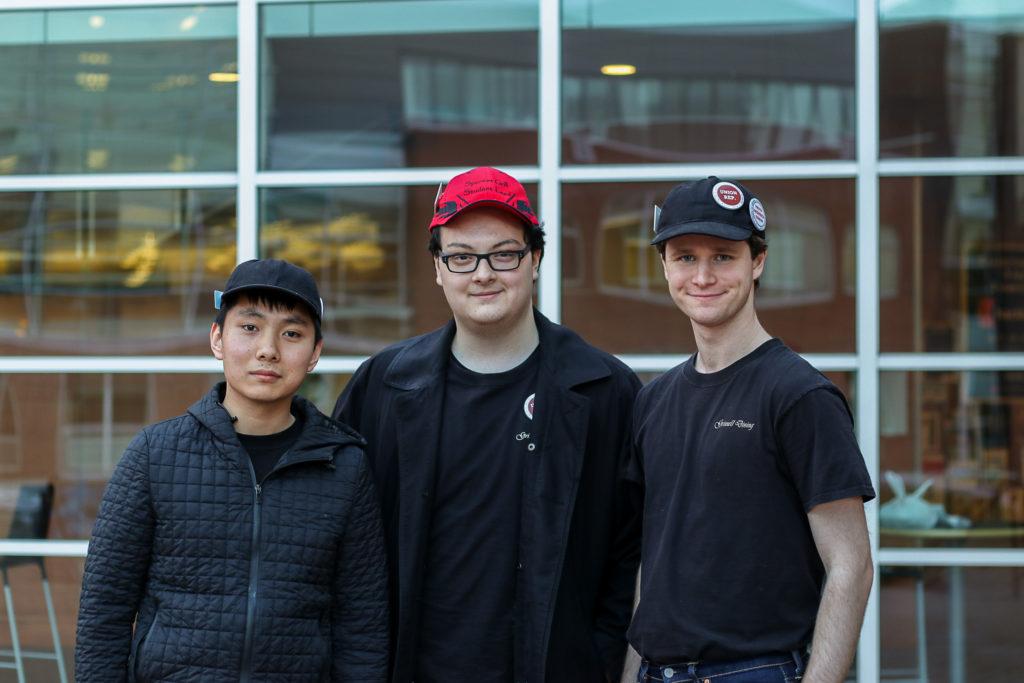On Wednesday, April 18, President Kington sent an all-campus memo detailing the College’s refusal to endorse an expansion of the Union of Grinnell Student Dining Workers (UGSDW). Among the College’s chief arguments was the cost that such an expansion would entail. The College states “that dozens of unions” would be necessary to address the variety of campus employment opportunities. According to the memo, “it would be unduly burdensome and expensive to administer such a system. The resources spent doing so would necessarily be drawn from the mission of the College. This could have an adverse impact on our students who receive financial aid through the work-study program.”
The next day, on a private Facebook group for Grinnell students, Tim Burnette ’19 posted that President Kington’s assertion posed a threat to the well-being of low-income students. Burnette, who is not a member of the union, penned a letter in concert with other First Generation and Low-Income (FGLI) students expressing their outrage and demanding an apology. They sent the letter early in the morning on April 22.
“I, as well as many others, did not welcome the threat,” Burnette wrote in an email to The S&B. Burnette is currently in Copenhagen and helped organize the FGLI response in spite of the time difference. They said that the group of FGLI students will continue in their advocacy work and that “another letter is on the way.”
Quinn Ercolani ’20, the UGSDW vice president, also believes that the language in the campus memo came across as threatening.
“[President Kington] mentioned that a good place for [the costs of unionizing] to come from is financial aid or student programming budgets. How is that anything other than a threat?” Ercolani said. Ercolani also refuted the idea that collective bargaining would ever result in such cuts: “The union would never engage in something that is going to make people worse off.”
Although the school is resistant to the demands for expansion, the administration showed a willingness to engage in the “civil and inclusive discourse” mentioned in President Kington’s memo. On Monday, April 24, the College provided UGSDW the email platform to send out an all campus memo in response to the school’s memo. The UGSDW memo, prefaced by the College’s statement that “in the spirit of fairness and equity, Grinnell has made a one-time allowance to distribute the UGSDW letter in the same manner as the message to which it responds,” begins by stating that the school’s arguments are “unsupported by the facts and the law.”
In the memo, UGSDW rejects the school’s assertion that student employment is too varied to be covered by one single union. Instead, the memo emphasizes the “common background” of all Grinnell workers, namely that they “live on the same campus, get paid the same low wages, and face the same issues at work.” Finally, the letter signs off affirming that the school may not be able to control what organizing happens on campus: “the decision to unionize is not left up to the administration. Regardless of your opinion on unionization, it’s up to us, as workers.”
Ercolani expressed gratitude to the school’s openness on two fronts.
“Purely selfishly, it benefits us. They came out and threatened financial aid, student programming, they said that students aren’t workers and aren’t deserving of [the right to unionize], they said that students don’t share a community of interest.” Additionally, Ercolani is appreciative of the school’s efforts to help facilitate open conversation. “It’s hard to have [civil discourse] when there is only one side of the story being portrayed, either when it’s just our side, or just the administration.”
In keeping the spirit of open conversation, President Kington promptly responded to the FGLI email on Tuesday, April 24. In his response, he thanked the students for reaching out and addressed the perceived threat to financial aid.
“I was referring to a long-term impact of increased costs from operations that would affect allocations within the whole budget, of which financial aid is one of the largest components,” Kington wrote. “I have used very similar language in other situations when there have been potential hits to our budget. … The financial aid of current students would not be affected by the creation of multiple or a single union of student workers.”
The College declined an interview with The S&B, and instead issued this statement: “Given the ongoing interest some students have to pursue expanded unionization, commenting any further beyond the Special Campus Memo would be inappropriate at this time.”
































































Warren Wanna Bee • Apr 27, 2018 at 10:18 am
Hasn’t anyone figured it out — all of the never, ever-ending construction in the past, present, and future of the college costs money? Maybe some of that money should be put toward operations? Look really closely at the college budget. Two thirds or more of capital expenses are funded by what the endowment throws out from an already very conservative spending policy. If the college were to curtail these capital projects in some fashion — slow them down, raise more money, scale-back the luxury — it could easily pay more to students and to front-line employees.
The most secret of all secrets the administration is hiding is that it has to keep doing all of these capital projects in order to annual spend the full amount of the endowment spending payout of 4%. The endowment contribution to the the operating budget is large, but it isn’t the full amount of the endowment payout. This isn’t a small figure; it’s several million dollars each year. Look at the past and look at their projections. There hasn’t been nor is there any plan to put the full 4% payout into the operating budget. It is shameful.